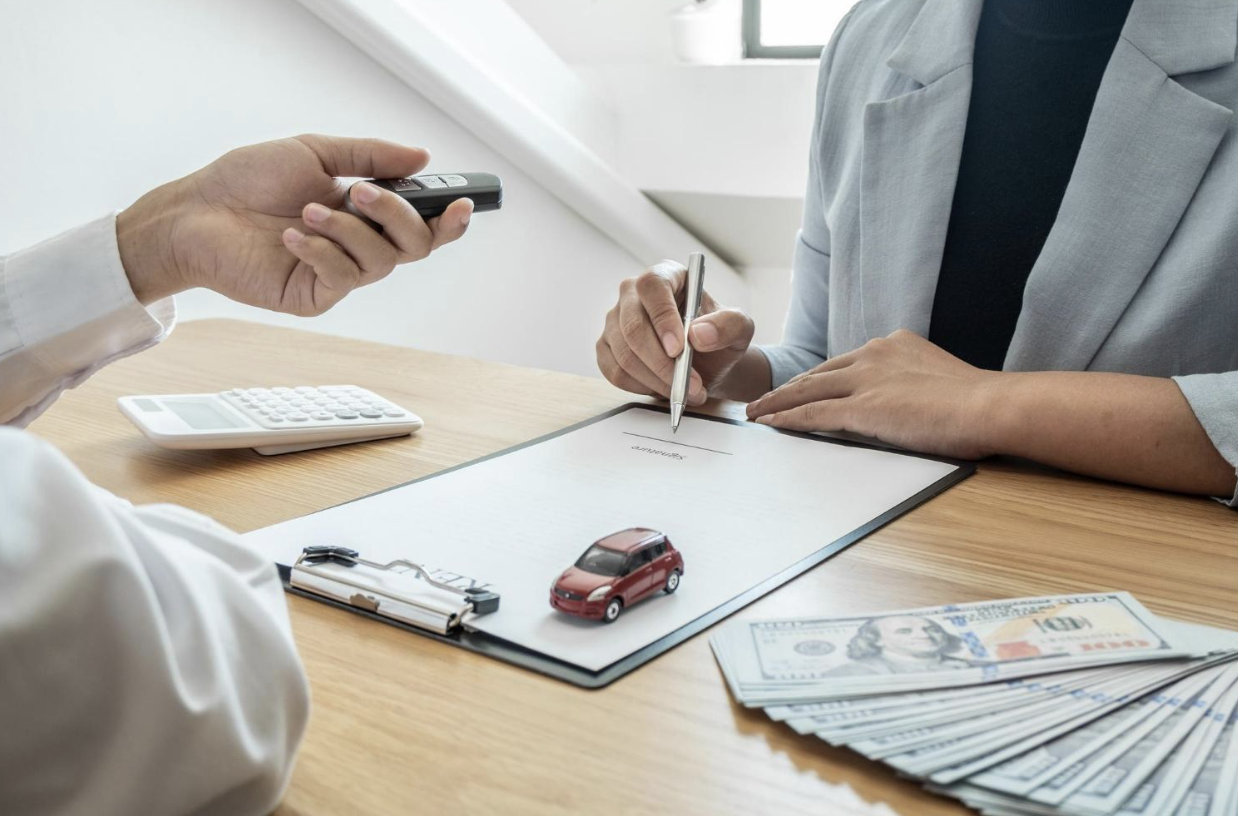Introduction
Financing a used car can feel overwhelming if you're not prepared. Between loan terms, dealerships, and budgeting, it's easy to make a quick decision that ends up costing more than you expected. A few simple mistakes during the process can lead to higher monthly payments or even long-term debt that’s hard to manage.
That’s why understanding how financing really works matters. When you know what to watch for, you’re more likely to end up with a loan that fits your budget and a car that suits your needs. Whether you’re buying your first vehicle or trading in for something more reliable, staying informed can help you skip the stress and keep more money in your pocket.
Understanding Your Credit Score
Before applying for any financing, it’s a good idea to know where your credit stands. Lenders look at your credit score to figure out how risky it might be to lend you money. The higher your score, the better your chances of getting a loan with a lower interest rate.
Here’s what a credit score can impact when financing a used vehicle:
- Your loan interest rate
- The total amount of interest paid over the life of the loan
- Approval from certain lenders or types of programs
- The size of your down payment requirements
Start by checking your score through a trusted source. Many banks, credit card companies, and financial apps offer free credit checks. If you notice a lower number than you expected, look into why. Maybe it’s old debt you forgot about or high balances on your cards. Either way, cleaning up your credit before shopping can give you a better deal.
Even small actions make a difference. Paying bills on time, paying down outstanding credit card balances, and avoiding new credit inquiries can slowly improve your score. A little extra effort upfront can mean serious savings on your car loan later.
Budgeting Before You Shop
Jumping into car shopping without a set budget is like grocery shopping when you’re hungry. You’re more likely to overspend or go after something that’s not practical. A used vehicle might seem like a deal based on price alone, but there’s more to think about than the sticker cost.
When setting your budget, consider these factors:
1. Monthly loan payment: Pick a number that won’t stretch your wallet, even if your situation changes.
2. Insurance: Used vehicles often cost less to insure, but quotes vary, so check ahead.
3. Maintenance: Used cars may need more upkeep. Budget for things like oil changes, brakes, and tire replacements during the year.
4. Fuel needs: A bigger SUV or truck might use more gas. Add that into your monthly estimate.
Using a simple car loan calculator can help you figure out what you can afford based on your income and expenses. Make sure to be honest about your spending. A tighter but realistic budget is better than stretching yourself thin for a vehicle that becomes a headache later on.
Whether you’re buying from a dealer or a private seller, walking in with a strong budget lets you stay in control and focus only on cars that meet your needs without financial stress.
Comparing Loan Offers In Used Car Financing
Once you’ve set your budget, take time to compare different loan options before signing anything. Too many people make the mistake of going with the first lender or offer they’re given, thinking it saves time. But shopping around can make a big difference in how much you pay over time.
Loan offers can vary in a few key ways:
- Interest rate: Even a slightly lower rate can lead to lower monthly payments and save you money in the long run.
- Loan term: Some lenders offer shorter or longer terms depending on qualifications and vehicle age.
- Fees and extras: Look for hidden fees like loan processing charges, early payoff penalties, or mandatory warranties bundled into the deal.
It’s smart to approach banks, credit unions, and dealership lenders to see who gives you the best deal. Make sure you’re comparing the full package, not just monthly payment numbers. Lower payments may come with longer terms that cost more over time.
When comparing offers, request them on the same day if possible. That way, differences in your financial profile each time you apply won’t skew the results. Keep your credit checks as close together as possible to reduce the impact on your credit score.
A quick example — someone with great credit might receive a three-year loan with a low rate from one lender, but another lender might stretch the loan to five years with a slightly higher rate just to lower the payment. The second one might seem easier to manage monthly, but it could end up costing more overall. Always look at the total cost of the loan, not just what you’ll pay each month.
Avoiding Long-Term Loans In Used Car Financing
Long-term auto loans may seem attractive because of their lower monthly payments, but they’re not always the best choice when financing a used vehicle. Cars lose value over time, and with an extended loan, you might end up owing more than the car is worth.
That’s what people mean when they say someone is upside down on a loan. It can make selling or trading in the car difficult. To avoid that situation, try not to stretch your loan beyond what’s reasonable.
Benefits of shorter loan terms:
- Lower overall interest paid over the life of the loan
- Equity builds faster, which can help in trades or future purchases
- Faster payoff means you’ll own the car outright sooner
If a shorter term means slightly higher monthly payments, it’s usually worth it in the long run. Find a balance. Go with a monthly amount you can sustain, and don’t let a lower payment trick you into signing a loan that lasts too long.
Think about how much you’ll still owe in three or four years. Will the car still be reliable by then? Will repair costs start adding up while you still have loan payments? These are the kinds of questions worth asking before locking into a long-term arrangement.
Smart Financing Moves For Your Used Car Purchase
Used car financing doesn’t have to be a hassle. But getting it right means taking your time and avoiding shortcuts. A little research upfront can protect you from years of financial strain.
Here’s a quick recap of smart steps to follow:
- Know your credit score and try to improve it before applying
- Set a clear budget that includes payments, maintenance, insurance, and fuel
- Compare loan offers instead of jumping at the first one
- Be cautious with long-term loans and understand the total cost of borrowing
The goal is to find both a vehicle and a financing plan that fits your life, not just your pocket in the short run. When you understand the process and make careful choices, your car loan can be a building block instead of a burden.
Stick to what you can afford, and don’t feel rushed to agree to anything you’re unsure about. Small choices early in the process can lead to big peace of mind once you're behind the wheel. Honest reflection, careful planning, and a willingness to ask questions can make all the difference.
Thinking about your next car but unsure about financing options? Explore used car financing solutions through United Auto Sales Saluda. With a little guidance, you can match the right vehicle with a payment plan that works for your budget and lifestyle.



